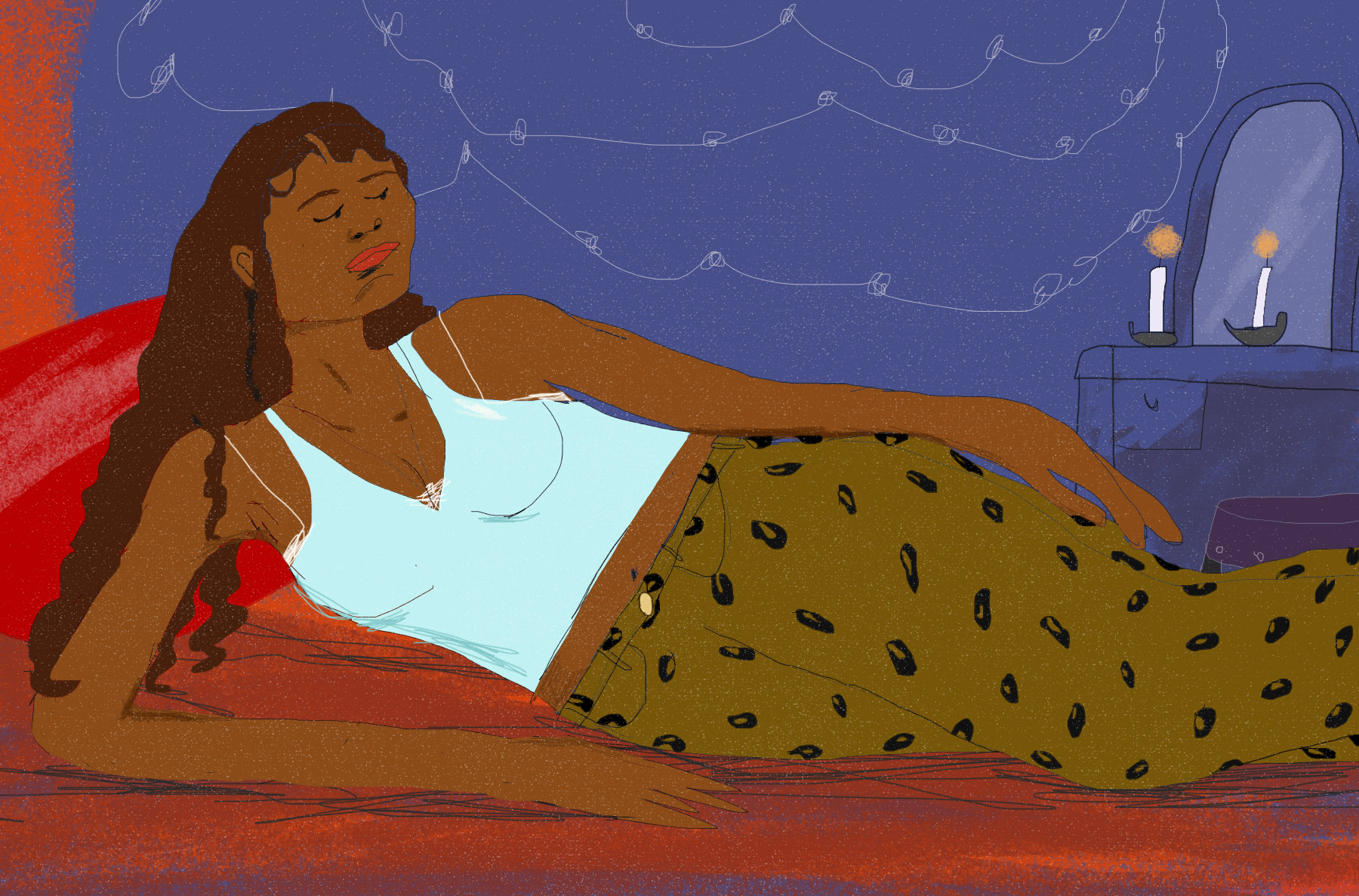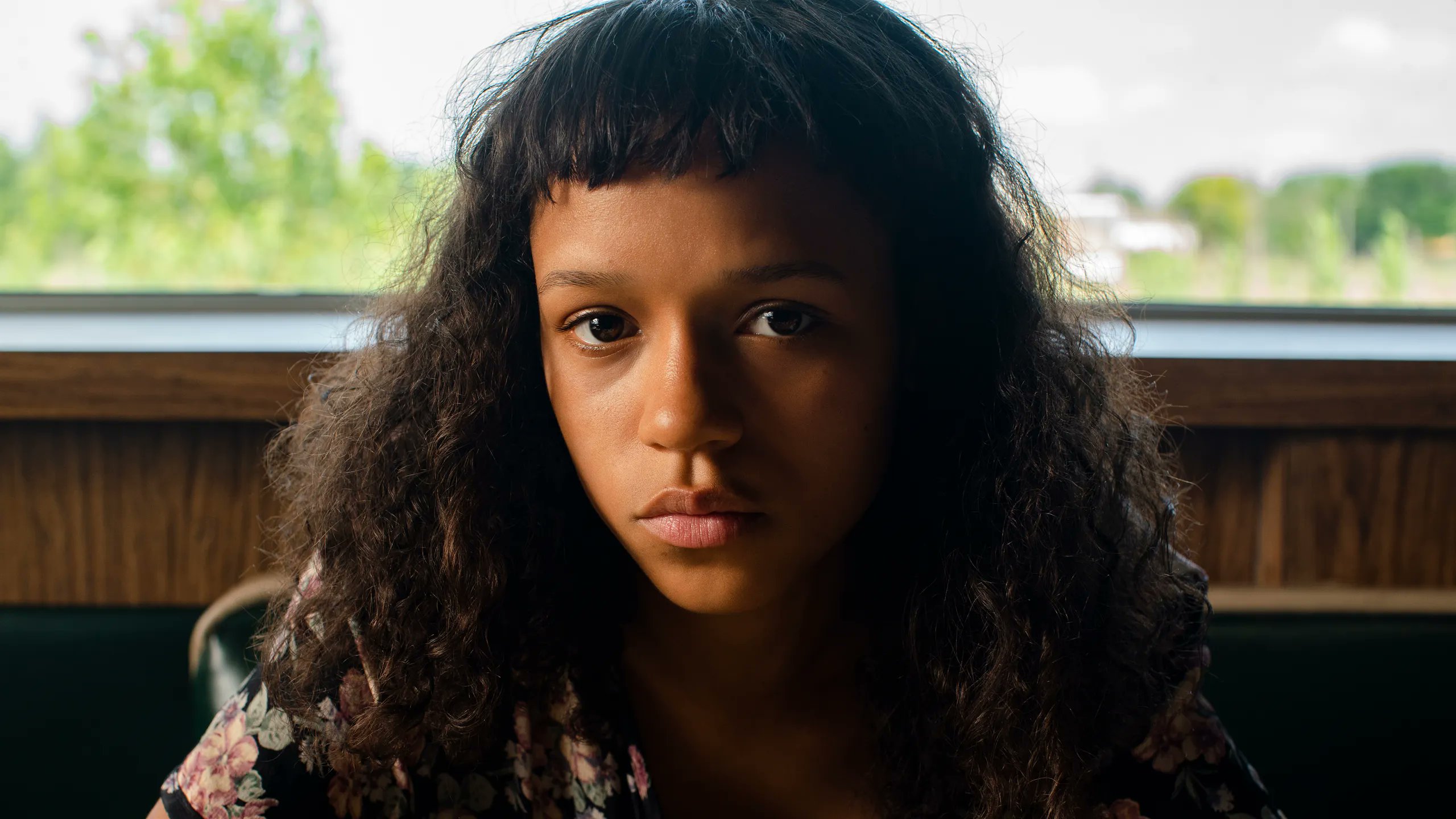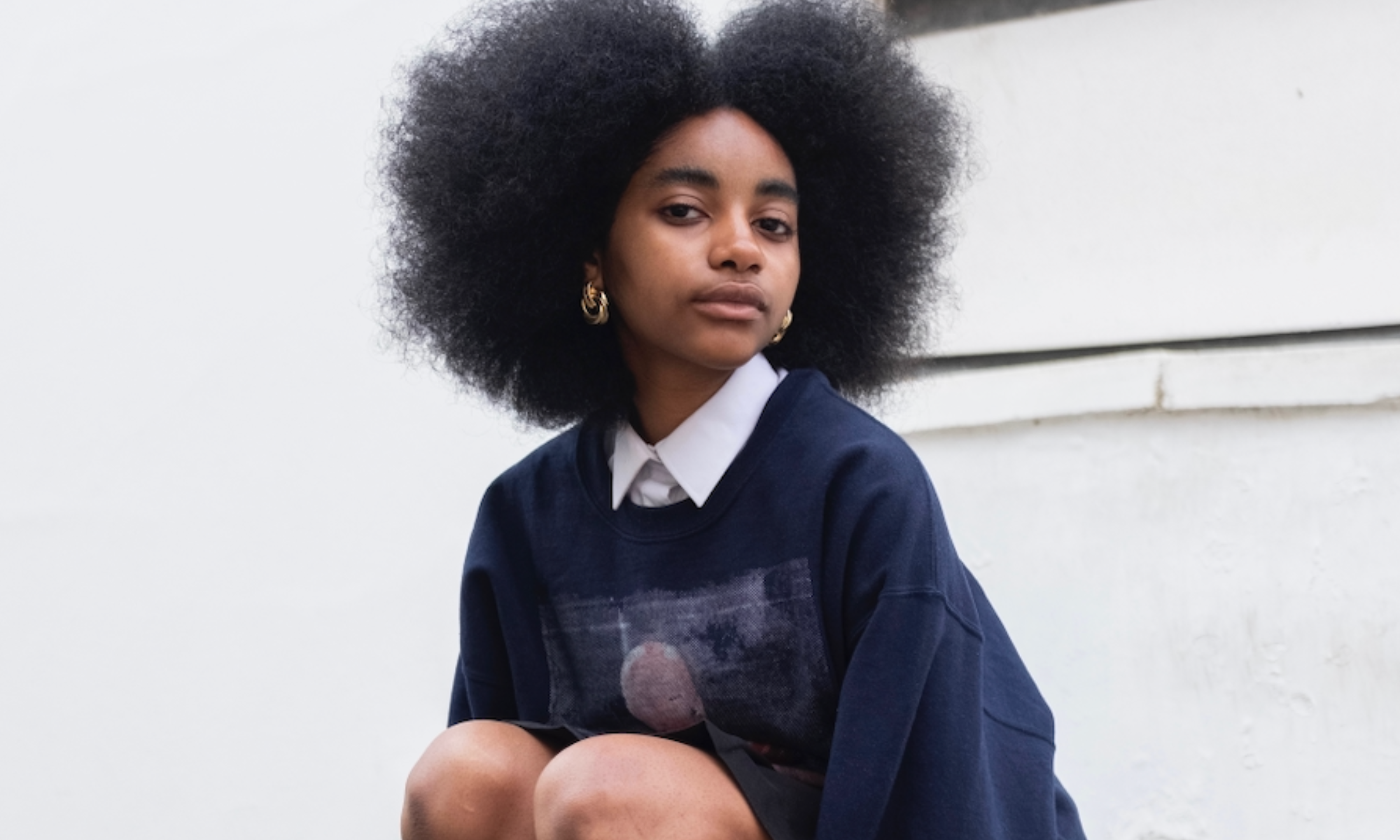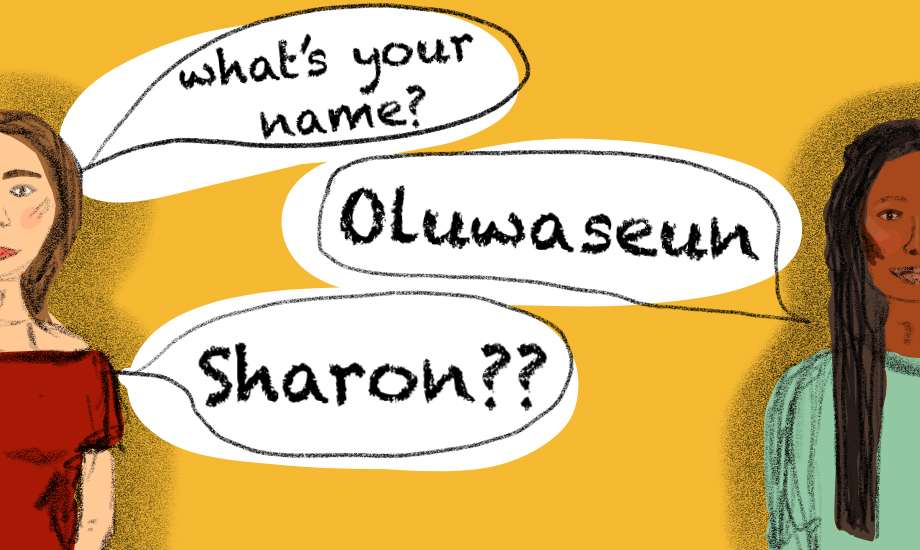
Illustration by Hannah Buckman
My name is Keisha and pop culture ruined my name
From rap to viral internet tales, the degradation of Keisha is widespread so I ask you, please: keep my name out of your mouth.
Lakeisha Goedluck
27 Mar 2020
Illustration by Hannah Buckman
Over the course of my life, I have become accustomed to the fact that when I introduce myself to people, most will reply with: “That’s a beautiful name.” It’s Lakeisha, Keisha for short and pop culture has demonised it. I have learned that this lukewarm compliment is often just a polite way of disguising what they really want to say: “That’s a very black name.”
Before the days of TikTok and Vine, YouTube reigned supreme as the go-to destination for viral video content. In 2009, a homemade sketch titled “A Hilarious compilation of funny black girl names” was uploaded to the website. Two young boys are shown taking it in turns to make their way through the list: fabled names such as “Obamaniqua”, “Elephantisha” and “Fri’Chickenisha” are mentioned for cheap laughs. But it’s the inclusion of real names like “Shaniqua”, “Latoya” and my own, “La’Kisha”, that make the video seem like less of a joke and more of a jibe.
Where music is concerned, Keisha has served as a long-running motif in hip hop more often than most black women’s names. Since its inception, the genre has frequently come under fire for championing misogyny – and my name has cropped up routinely. Take Russ & Tion Wayne’s recent chart-topper Keisha & Becky. Including lyrics like “Very sexy, Keisha, Becky” and “Oh my God, look at that bumper, what the bomba?” The overarching theme of the song is to sexualise and trivialise the women mentioned. Similarly, J Hus states that he “Might pull up on Keisha, I do it just to tease her” in his song Leave Me Alone, while Dave East’s track Keisha is a lyrical exposition of his intent to bed a licentious woman of that name. “I think within the genre, Keisha is used as a tool to unpack the various narratives that exist in stories… [there’s] a superficiality in reference to ‘her’ attributes,” says music writer Nicolas Tyrell, who specialises in hip hop discourse. “This will always place Keisha as an accomplice – the journey, not the destination.”
Elsewhere in rap, Keisha is beguiling. In YG’s Keshia Had a Baby, “Pretty Keshia” who’s “so fly, so diva” is initially lauded as an ambitious, desirable woman – until she betrays a man who loves her and receives her comeuppance towards the end of the track. Kendrick Lamar’s Keisha’s Song (Her Pain) is a profound record which utilises Keisha as an illuminating metaphor: “She’s employed as a vehicle of societal woes and institutional demons,” explains Tyrell. A “beautiful” teenager who has lead a life plagued by misfortune, Keisha turns to prostitution to survive but winds up dead. Aside from the obvious lasciviousness, whether depicted as villains or victims, there’s also usually a ruinous element at play when a Keisha crops up in hip hop.
My name has found its way into the black film canon too. Keisha tends to be treated with the same concoction of fascination and contempt on-screen as they are in music. Hype Williams’ 1998 crime drama Belly stars rapper DMX as street criminal Tommy, while his girlfriend Keisha is played by Taral Hicks. In one poignant sequence, the couple are seen shouting at each other: Keisha is in her underwear being manhandled by Tommy before the situation dissipates and they have sex. Throughout the course of the film, Keisha is effectively used by Tommy as a sexual object and a scapegoat – she is jailed for his illegal dealings and rather than helping her, he flees.
Keisha in the TV series Power is not dissimilar to Taral’s character. Played by LaLa Anthony, she’s presented as a man-eater who enters a corrupt relationship with a character coincidentally called Tommy – but her story ends when she’s murdered out of convenience by her close friend. “It is increasingly easy to find black women, especially young ones, depicted as Jezebels whose only value is as sexual commodities,” writes Dr David Pilgrim, Professor of Sociology at Ferris State University. Popularised by the Blaxploitation genre that was dominated by white directors, both personas ascribe to this humiliating stereotype of a black woman that’s historically been depicted on film.
Outside the realm of global popular culture, the name has also been demeaned on a more local level in Britain. During the early 00s when social media was still very much in its infancy, MSN and regular text message reigned supreme. It was by these channels that inner-city teenagers were left titillated by the episodic written tale of “Kiesha da Sket” – a promiscuous urban legend. “I took of ma top an he started feelin up ma breasts;” “he had sum pine wardrobes an a desk full of condoms [sic].” Written in first-person broken English, the story further pushes the idea that Keisha is naive, lust-ridden and perpetually up to no good. Throughout my teenage years, once boys heard my name, they’d cheekily reference the chronicle. This was because they held a preconception of me being “easy”, largely thanks to the degradation of Keisha in pop culture.
In Western society, names that aren’t of European origin are often subject to discrimination in some form or another. Whether it’s the tendency to be routinely mispronounced without attempted self-correction or being used as an opportunity for outright mockery as the above example suggests. It’s no wonder, then, that some ethnic parents simply give their children Anglicised names for ease. However, for those of us who hold first names that relate to our racial background, being stereotyped is a commonplace experience: you’d be hard-pressed to find a Mohammad that hasn’t become the butt of a terrorism-related joke.
It’s an issue that has been flagged in recruitment circles, as something that even works against people looking for work. In 2017, BBC’s Inside Out London found that an application from “Adam” received three times as many interview invitations than a “Mohamed” – even with the exact same experience. Similarly, back in 2015, research scientist Dr. Colin Holbrook who works at the UCLA Center for Behavior, Evolution, and Culture found that men with black-sounding names such as “Jamal” and “Darnell” were presumed to be more dangerous in comparison to men with white names. Students with these particular black-sounding names also face discrimination in schools. A Stanford University study conducted in the same year found that kids with stereotypically black names were presumed to be more troublesome and deserving of harsher punishment in relation to their peers with white names.
“In western society, names that aren’t of European origin are often subject to discrimination in some form or another”
A large proportion of black women know this plight of being pigeonholed all too well. Across the board, it’s often the so-called black names that end in “-isha” that receive flack and ridicule. From an etymological standpoint, the root of a lot of them is “Aisha”, derived from an Arabic adjective that means “alive” or “well”. “Some have specifically attributed the popularity of this female given name among black Americans to the influence of the Nation of Islam during the Civil Rights Movement in the 1960s,” says John Kelly, a Senior Research Editor for Dictionary.com. “[The movement] helped make unique given names more valuable, more desirable – more empowered as names unshackled by the experience and legacy of slavery which stripped and replaced original names.”
Aisha and other monikers of its ilk have been adapted to include prefixes, suffixes and apostrophes to give rise to black American forenames. John notes that these additions are sometimes credited to either Louisianan French, African denomination, or are simply included for the pleasant way that they sound. In particular, the black American variant “Keisha” has been besmirched beyond its primary definition. As a child, having the name Lakeisha used to cause me a lot of anxiety and upset. Even now, I’ll be unjustly judged for my supposed “ghetto name”. People who have read my name first and met me afterwards will say things like: “Of course you’re black – I expected you to be less well-spoken, though.” Kelly explains that certain black American names are perceived to “sound black” so are subject to racial prejudice. “White people might name their children ‘Ajax’ or ‘Trigger’ and, while sometimes a punchline, they are not subject to the same level of racialised venom – this, to me, clearly points to an issue of power,” he concludes.
But how has the degradation of black American names become so standardised in modern society? As is the case with most issues rooted in racism, the discrimination targeted towards ethnic names isn’t arbitrary. Cultural influence and entrenched social beliefs go hand in hand to fuel the ideology that certain names carry more merit than others – and this is sadly perpetuated both within the black community and beyond it. While traditional white English names may be mocked for their banality, the Emilys and Bens of the world are usually spared from being tied to negative connotations.
Keisha isn’t a wanton woman, a person to be pitied or a throwaway plot device; Keisha is simply a name steeped in cultural pride that’s mainly given to black girls. So, at a time when people like me still struggle to land job interviews due to our ethnic-sounding names, it’s the misguided attitudes held against them that need to be rejected instead.








